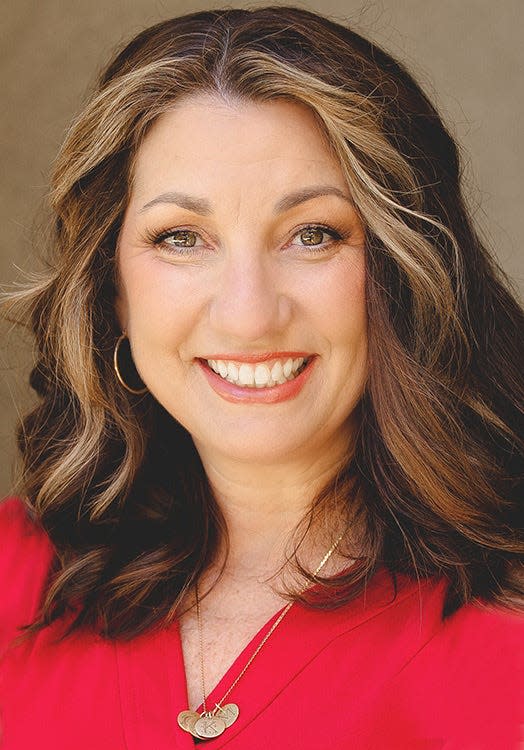Pensacola seniors are facing an unaffordable housing crisis | Kline

While our state has become very attractive to wealthy retirees from other parts of the country, our local seniors are finding it difficult to survive. Currently, the average monthly rent for a home in our area is $1,750, while the median household income is $57,730, according to the most recent US Census data. Thanks to increased housing costs, seniors in Florida are among the most cost burdened individuals in the nation.
According to University of South Florida Health News, nearly one-third of households headed by seniors pay more than 30 percent of their income for housing; and half of those folks pay more than 50 percent. Florida has an affordable housing shortage; for every 100 low-income seniors, there are only 26 affordable housing units available.
The number of seniors who qualify for government housing vouchers, (assistance checks paid directly to landlords to cover a portion of a tenant’s rent) is rapidly increasing; but of those who qualify, only about one-third are receiving housing help. A representative from the City of Pensacola’s Housing Office confirmed that the city’s current housing voucher list stopped accepting new applicants last June; and there is no fast track for housing aid to the elderly.
For seniors hoping to age in place in their own homes, the picture is even more bleak. The skyrocketing cost of property insurance, coupled with increased utility rates are pushing elderly homeowners into debt. Even for seniors with moderate incomes, the cost of housing combined with caregiving needs creates an incredible financial burden. According to a recent study, just 14 percent of older adults living alone can afford a daily visit from a home health aide, and many cannot afford the cost of retrofitting their homes to accommodate health issues associated with aging.
For those concerned with the rising number of homeless in our area, older people are becoming a growing segment of the homeless population. A California study of the homeless population in Los Angeles found that most older people lost housing because they simply could no longer pay the rent. Older people in low-wage, physically demanding jobs without pensions are most likely to fall into homelessness.
While state politicians brag about the number of California residents moving to Florida, they say little about the fact that mismanaged growth is leading us down the exact same path. Florida has too few affordable homes for our growing population. We have marketed our state as a retirement destination for more than 50 years. Why hasn’t our state legislature planned for this inevitable problem? The answer is complicated.
Earlier legislatures did recognize the potential housing crisis. In 1992, the state passed the Sadowski Act. This law established a plan to fund affordable housing through a public-private partnership. In short, it created a trust funded by fees placed on real estate transactions. These fees, like documentary stamp taxes, increased as housing prices went up, so the trust was completely self-funded. The money from the Sadowski Trust was designed to support house and apartment construction, renovations and down payment assistance for first-time buyers.
Over the last thirty years, our state legislature has raided the Sadowski Trust to pay for other parts of the budget. By the end of this year, the Sadowski Trust had produced revenues of $8.2 billion, but the legislature has used more than $2.6 billion of it to fund unrelated projects. Each year, the legislature’s budget raids were so unpredictable, that local governments could not count on those funds to create new housing solutions. For example, in 2012 and 2014, the legislature took all the Sadowski revenues. None of our local state representatives have sponsored any bills to address this crisis.
It has only been within the past two years, once the crisis was upon us, that the legislature began using more of the Sadowski revenues for their intended purpose. In addition to sending these funds back home, the state should allow local county and municipal governments to look for creative ways to incentivize the local development of affordable and mixed-use communities for seniors. These communities could include private businesses that serve seniors, which would also address senior transportation issues, by placing goods and services withing walking distance.
As citizens, we should be able to rely on our elected officials to counter the problems associated with rapid growth. As we discuss the development and revitalization of our local neighborhoods, such as the acquisition of the old Baptist Hospital property, our state representatives must be willing to fight to secure the necessary funding for our district to help local seniors who have worked their entire lives in order to retire here. Instead, in this current legislative session we continue to see more politically divisive bills that garner lots of media attention but do little to help our struggling seniors.
Kim Kline is a non-party affiliate candidate for Florida House District 2.
This article originally appeared on Pensacola News Journal: Pensacola seniors are facing an unaffordable housing crisis | Kline
